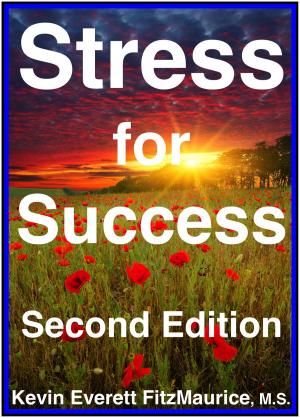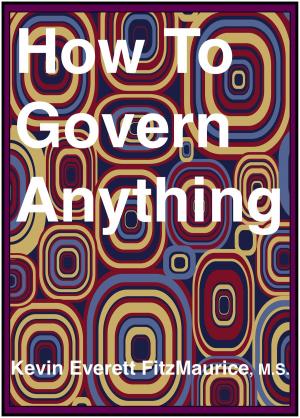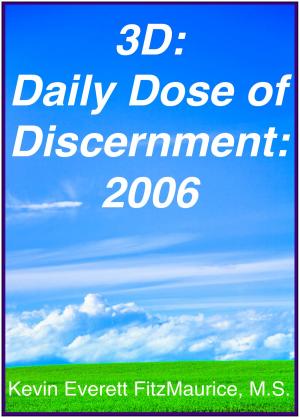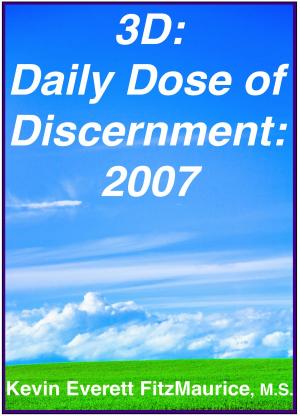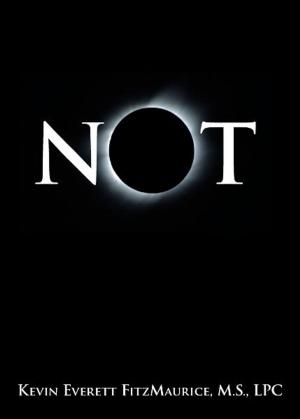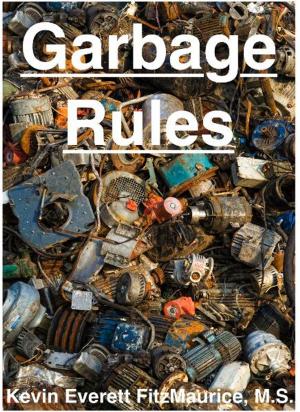3D: Daily Dose of Discernment: 2008
Nonfiction, Health & Well Being, Self Help, Self Improvement, Stress Management, Religion & Spirituality, Philosophy, Mind & Body, Family & Relationships| Author: | Kevin Everett FitzMaurice | ISBN: | 9781878693334 |
| Publisher: | FitzMaurice Publishers | Publication: | February 17, 2013 |
| Imprint: | Language: | English |
| Author: | Kevin Everett FitzMaurice |
| ISBN: | 9781878693334 |
| Publisher: | FitzMaurice Publishers |
| Publication: | February 17, 2013 |
| Imprint: | |
| Language: | English |
Read this book to discover:
1) How To Discover Insight by practicing the discernment of sayings.
2) How To Exercise Your Mind for greater openness, flexibility, and creativity.
3) How To Increase Your Mental Capability by increasing your capacity for understanding, perception, and wisdom.
This book is a collection of sayings for each day of the year, originally created in 2008, but the quotations remain appropriate and relevant for any year. The sayings cover various topics important to your emotional and behavioral health, including: emotional skills, psychological skills, psychotherapy, psychology, philosophy, spirituality, General Semantics, Eastern psychology, Eastern philosophy, meditation, flow, responsibility, social commentary, authenticity, identity, and the nature of self.
You will discover sayings useful to understanding Eastern thought and General Semantics. The agreement between General Semantics and Eastern philosophy is profound and illuminating, and understanding that agreement will deepen your understanding of both. For instance, the expressions “The description is not the described” and “The thought is not the thing” are found in both Eastern philosophy and General Semantics. Both systems arrive at reality as nonverbal, silent, and beyond comprehension with thought, despite the fact that one system is spiritual and the other is atheistic. That two entirely different approaches arrive at the same ultimate conclusions is exciting and enlightening to truth seekers who honor convergence.
You will find the sayings herein amusing, helpful, interesting, and thought-provoking. Many of the sayings are like Zen koans: If you sit with them, they reveal the “other side”, free of words. Many of the sayings are open to multiple interpretations and meanings. New meanings will occur to you on your different journeys through this book.
Some of the sayings share the selfsame insight, phrased differently. Why do this? Such variation helps you see past the simpler surface meanings to reach the deeper felt experiences. A slight change in wording often allows people to drop their minds long enough to hear something fresh. One person’s “That’s obvious” is another person’s “Aha!” moment.
Let the sayings pass that don’t open to you now. Focus on the sayings that bring stillness, and you will get results. Listen beyond the words. Rather than think the sayings through, feel them through. Sense the music behind the words rather than think about their meanings. Manage to touch the energy behind the words, and your heart will be touched. Find what you will. Take what you want, and leave the rest to leaven.
Pithy sayings can be either personally meaningless or instantly helpful. Often the best results come from sayings or aphorisms after they have grown slowly in the garden of your mind. In time, ideas you initially reject can grow to have more meaning. Aphorisms that make no sense today can suddenly reveal themselves to you years later. Some sayings can follow and teach you for a lifetime. For example, “Drink from your own well” has taught FitzMaurice again and again for decades.
Making yourself contemplate a saying you do not understand can reveal much about your thinking styles. Is the coldness coming from the saying or your own lack of openness? The best approach is to feel your way to the inside meat of a saying.
This book uses the word change both in the psychological sense and in the layman’s sense. Change is considered an impossibility for psychological entities, like thoughts, feelings, and sensations. However, sometimes this book recommends change or describes how to change, using change in the layman’s sense: change being the transformation into something else (which is wrong for psychological usage) or being a switching to something else (which is right for psychological usage). You do not change your dog into a cat. You can change from having a dog to having a cat. You change your shirt by switching to a different shirt, not by mutating your current shirt into another shirt. Switch, not change. Change can also be used in the sense of turning, shifting, transferring, or redirecting, not evolving. More discussion on change can be found in Attitude Is All You Need! Second Edition.
Often the sayings in this book are intentionally open. By “open” we mean that the pronoun it is used rather than anything specific to allow you to insert an issue relevant to your life. You might consider substituting an issue—such as aggression, anger, anxiety, attachment, attacks, conflicts, crudeness, depression, distress, ego, failure, feeling discounted, grief, guilt, ignorance, life, looping, loss, meaning, pride, problem, purpose, regret, rudeness, sadness, sarcasm, self, shame, and stuckness—for it in many of the sayings. Personalizing the sayings will make them more powerful and helpful.
The sayings were originally posted on the author’s website. They were edited for this book, and the edited versions now replace the original website versions. Editing was done for typos, grammar, and spelling. Editing was also done for duplicates, clarity of meaning, and precision. However, attempts were made to maintain the original meanings and intentions. Each saying is dated in the mathematical fashion, with the numbers in order by descending size.
If you are interested in quotations, then please visit the author’s website. There you will find lists of quotations organized by topic. If you find quotations intriguing but not fulfilling, then please examine some of FitzMaurice’s other works, catalogued at the end of this book in the section “Recommended Books, Alphabetically by Author.”
FitzMaurice’s works also offer nine different approaches for you to improve your physical, mental, emotional, and relational health.
- In Attitude Is All You Need! Second Edition, discover methods to sort out which attitudes are working for you and which attitudes are working against you. Also learn how to increase your productive attitudes and to decrease your unproductive attitudes, to free yourself from the negative influence of detrimental attitudes.
- In Breathe, discover methods for congruence, self-relaxation, self-calming, and self-centering. The methods’ positive effects come almost instantaneously with practice. You can lower your stress and improve your physical, mental, and emotional health now.
- In Garden, discover methods for sorting out which thoughts work for you and which thoughts work against you. Also learn how to increase your productive thoughts and to decrease your unproductive thoughts, to free yourself from the negative influence of detrimental thoughts.
- In Not, learn how to save yourself from the number one mistake that underlies failure. Learn how and why people are prone to viewing things as terrible and horrible. Also learn how to be a more effective parent, coach, and leader by learning to encourage, inspire, and motivate more powerfully.
- In Garbage Rules, be confronted with your reliance on mental garbage and the resulting garbage that reliance brings into your life. Be paradoxically motivated to switch to healthier and happier thinking and feeling styles by facing the absurdity of focusing on garbage.
- In the three books Something For Nothing, Anything Goes, and Acid Test, and the five released books in the 3D: Daily Dose of Discernment series, find sayings and aphorisms on many topics that you can use for insight, introspection, contemplation, meditation, and mental exercise.
- In Stress for Success, discover how stress is misunderstood and misused. Learn how stress is your best friend. Improve how and when you cope and problem solve and how often you cope and problem solve. Improve how often you achieve and contribute.
- In The Secret of Maturity, Third Edition, discover what it means to be mature and how to live a mature life. Also learn many practical and helpful emotional skills to improve your health, happiness, prosperity, and relationships.
- In Ego, discover proven methods you can use to reduce your devotion to and dependence on ego. The less ego you have, the more passionate and productive your life will be. Reducing ego also teaches you how to be free, happy, and more creative.
Experiment until you find the ebook or two that works best for you. Worry not if your choices are the best for anyone else.
Read this book to discover:
1) How To Discover Insight by practicing the discernment of sayings.
2) How To Exercise Your Mind for greater openness, flexibility, and creativity.
3) How To Increase Your Mental Capability by increasing your capacity for understanding, perception, and wisdom.
This book is a collection of sayings for each day of the year, originally created in 2008, but the quotations remain appropriate and relevant for any year. The sayings cover various topics important to your emotional and behavioral health, including: emotional skills, psychological skills, psychotherapy, psychology, philosophy, spirituality, General Semantics, Eastern psychology, Eastern philosophy, meditation, flow, responsibility, social commentary, authenticity, identity, and the nature of self.
You will discover sayings useful to understanding Eastern thought and General Semantics. The agreement between General Semantics and Eastern philosophy is profound and illuminating, and understanding that agreement will deepen your understanding of both. For instance, the expressions “The description is not the described” and “The thought is not the thing” are found in both Eastern philosophy and General Semantics. Both systems arrive at reality as nonverbal, silent, and beyond comprehension with thought, despite the fact that one system is spiritual and the other is atheistic. That two entirely different approaches arrive at the same ultimate conclusions is exciting and enlightening to truth seekers who honor convergence.
You will find the sayings herein amusing, helpful, interesting, and thought-provoking. Many of the sayings are like Zen koans: If you sit with them, they reveal the “other side”, free of words. Many of the sayings are open to multiple interpretations and meanings. New meanings will occur to you on your different journeys through this book.
Some of the sayings share the selfsame insight, phrased differently. Why do this? Such variation helps you see past the simpler surface meanings to reach the deeper felt experiences. A slight change in wording often allows people to drop their minds long enough to hear something fresh. One person’s “That’s obvious” is another person’s “Aha!” moment.
Let the sayings pass that don’t open to you now. Focus on the sayings that bring stillness, and you will get results. Listen beyond the words. Rather than think the sayings through, feel them through. Sense the music behind the words rather than think about their meanings. Manage to touch the energy behind the words, and your heart will be touched. Find what you will. Take what you want, and leave the rest to leaven.
Pithy sayings can be either personally meaningless or instantly helpful. Often the best results come from sayings or aphorisms after they have grown slowly in the garden of your mind. In time, ideas you initially reject can grow to have more meaning. Aphorisms that make no sense today can suddenly reveal themselves to you years later. Some sayings can follow and teach you for a lifetime. For example, “Drink from your own well” has taught FitzMaurice again and again for decades.
Making yourself contemplate a saying you do not understand can reveal much about your thinking styles. Is the coldness coming from the saying or your own lack of openness? The best approach is to feel your way to the inside meat of a saying.
This book uses the word change both in the psychological sense and in the layman’s sense. Change is considered an impossibility for psychological entities, like thoughts, feelings, and sensations. However, sometimes this book recommends change or describes how to change, using change in the layman’s sense: change being the transformation into something else (which is wrong for psychological usage) or being a switching to something else (which is right for psychological usage). You do not change your dog into a cat. You can change from having a dog to having a cat. You change your shirt by switching to a different shirt, not by mutating your current shirt into another shirt. Switch, not change. Change can also be used in the sense of turning, shifting, transferring, or redirecting, not evolving. More discussion on change can be found in Attitude Is All You Need! Second Edition.
Often the sayings in this book are intentionally open. By “open” we mean that the pronoun it is used rather than anything specific to allow you to insert an issue relevant to your life. You might consider substituting an issue—such as aggression, anger, anxiety, attachment, attacks, conflicts, crudeness, depression, distress, ego, failure, feeling discounted, grief, guilt, ignorance, life, looping, loss, meaning, pride, problem, purpose, regret, rudeness, sadness, sarcasm, self, shame, and stuckness—for it in many of the sayings. Personalizing the sayings will make them more powerful and helpful.
The sayings were originally posted on the author’s website. They were edited for this book, and the edited versions now replace the original website versions. Editing was done for typos, grammar, and spelling. Editing was also done for duplicates, clarity of meaning, and precision. However, attempts were made to maintain the original meanings and intentions. Each saying is dated in the mathematical fashion, with the numbers in order by descending size.
If you are interested in quotations, then please visit the author’s website. There you will find lists of quotations organized by topic. If you find quotations intriguing but not fulfilling, then please examine some of FitzMaurice’s other works, catalogued at the end of this book in the section “Recommended Books, Alphabetically by Author.”
FitzMaurice’s works also offer nine different approaches for you to improve your physical, mental, emotional, and relational health.
- In Attitude Is All You Need! Second Edition, discover methods to sort out which attitudes are working for you and which attitudes are working against you. Also learn how to increase your productive attitudes and to decrease your unproductive attitudes, to free yourself from the negative influence of detrimental attitudes.
- In Breathe, discover methods for congruence, self-relaxation, self-calming, and self-centering. The methods’ positive effects come almost instantaneously with practice. You can lower your stress and improve your physical, mental, and emotional health now.
- In Garden, discover methods for sorting out which thoughts work for you and which thoughts work against you. Also learn how to increase your productive thoughts and to decrease your unproductive thoughts, to free yourself from the negative influence of detrimental thoughts.
- In Not, learn how to save yourself from the number one mistake that underlies failure. Learn how and why people are prone to viewing things as terrible and horrible. Also learn how to be a more effective parent, coach, and leader by learning to encourage, inspire, and motivate more powerfully.
- In Garbage Rules, be confronted with your reliance on mental garbage and the resulting garbage that reliance brings into your life. Be paradoxically motivated to switch to healthier and happier thinking and feeling styles by facing the absurdity of focusing on garbage.
- In the three books Something For Nothing, Anything Goes, and Acid Test, and the five released books in the 3D: Daily Dose of Discernment series, find sayings and aphorisms on many topics that you can use for insight, introspection, contemplation, meditation, and mental exercise.
- In Stress for Success, discover how stress is misunderstood and misused. Learn how stress is your best friend. Improve how and when you cope and problem solve and how often you cope and problem solve. Improve how often you achieve and contribute.
- In The Secret of Maturity, Third Edition, discover what it means to be mature and how to live a mature life. Also learn many practical and helpful emotional skills to improve your health, happiness, prosperity, and relationships.
- In Ego, discover proven methods you can use to reduce your devotion to and dependence on ego. The less ego you have, the more passionate and productive your life will be. Reducing ego also teaches you how to be free, happy, and more creative.
Experiment until you find the ebook or two that works best for you. Worry not if your choices are the best for anyone else.




